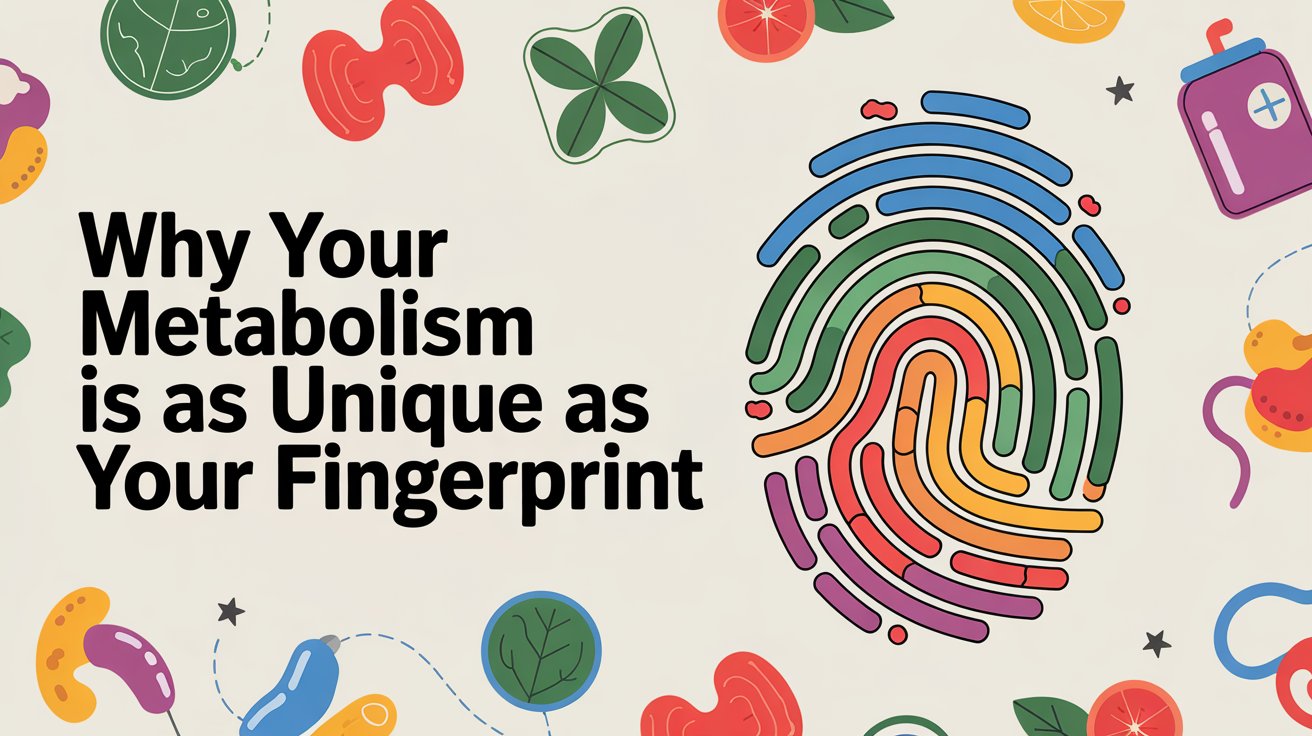
Have you ever wondered why your friend can indulge in desserts without gaining an ounce, while you feel the effects of that slice of cake for days? You’re not alone! Just like fingerprints, our metabolism is a one-of-a-kind blueprint that shapes how we process food and burn energy. In this article, we’ll dive deep into the fascinating world of metabolism—unpacking the factors that make yours unique and how you can optimize it for better health and vitality. Get ready to crack the code to your personal metabolic mystery!
Understanding Metabolism
Metabolism refers to the collection of biochemical processes that occur within our bodies to convert the food we eat into energy. It’s not just about how quickly we burn calories; it’s a complex system influenced by various factors including genetics, age, gender, body composition, and lifestyle. Understanding what metabolism is and how it works is crucial in recognizing why each person’s metabolic rate can differ so significantly.
Genetic Influences
Your genes play a major role in determining your metabolic rate. Some people inherit a faster metabolism from their parents, allowing them to burn calories more efficiently. Here are some genetic factors that contribute to this variance:
- Basal Metabolic Rate (BMR): This is the number of calories your body requires at rest to maintain essential functions. Genetics can dictate your BMR significantly.
- Muscle Mass: Individuals with a higher proportion of muscle tissue often have a higher metabolic rate, and genetics influences muscle development.
- Hormonal Regulation: Hormones like thyroxine, which regulates metabolism, also have genetic components. Variations can lead to differences in metabolic rates.
Age and Metabolism
As we age, our metabolism naturally slows down. Here’s how age affects metabolism:
- Muscle Loss: After age 30, many people experience a gradual loss of muscle mass, which can reduce their metabolic rate.
- Decreased Hormonal Levels: Hormonal shifts during aging can affect how our bodies utilize energy.
- Changes in Activity Levels: Many adults become less active with age, further contributing to metabolic decline.
Gender Differences
Gender also plays a role in how fast or slow metabolism can be:
- Muscle vs. Fat: Typically, men have a higher percentage of muscle mass compared to women, resulting in higher metabolic rates.
- Hormonal Variations: Women experience hormonal fluctuations throughout their menstrual cycle, pregnancy, and menopause, which can influence metabolism.
Body Composition
Your body composition—our ratio of fat to muscle—has a profound impact on your metabolism:
- Higher Muscle Mass: As previously mentioned, muscle requires more energy to maintain than fat. Therefore, those with higher muscle mass generally have higher metabolic rates.
- Fat Distribution: Where you store fat on your body can also be a factor. Abdominal fat is metabolically more active compared to fat stored elsewhere.
Lifestyle Choices
Your daily habits significantly influence your metabolism, including diet, exercise, sleep, and stress levels:
- Diet: Consuming a balanced diet, rich in proteins, can help maintain muscle mass and encourage a faster metabolism.
- Exercise: Regular physical activity, especially strength training, can enhance your muscle mass and metabolic rate.
- Sleep: Poor sleep can disrupt hormone levels, impacting metabolism negatively.
- Stress: Chronic stress can lead to hormonal imbalances, which may affect weight management and metabolic health.
Optimizing Your Metabolism
While you cannot change your genes or age, you can take control of other factors to optimize your metabolism:
- Stay Active: Incorporate strength training, cardio, and flexibility exercises into your routine.
- Eat Enough Protein: Include protein-rich foods in every meal to support muscle health.
- Hydrate: Staying properly hydrated can help metabolic processes function optimally.
- Manage Stress: Practicing mindfulness and stress-relief techniques can lead to better hormonal balance.
- Prioritize Sleep: Establish a healthy sleep routine to support your metabolism.
Conclusion
Your metabolism is a unique aspect of who you are, influenced by a wide array of genetic and lifestyle factors. Understanding these elements can empower you to make healthier choices and better manage your weight and energy levels. While there may be no ‘quick fix’ for boosting metabolism, implementing the strategies discussed can help you enhance your metabolic health over time. Remember, being kind to your body while optimizing its functions is the key to overall wellness.



You must be logged in to post a comment.